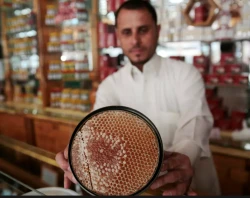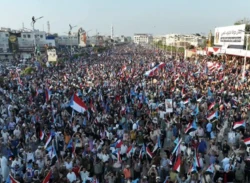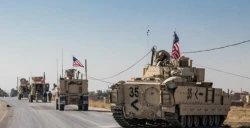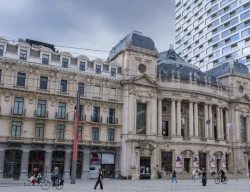George Floyd death eases tensions between two communities
- 2020-06-15 09:18:13
 Pierre Rayer: Art, Science, and Happiness: The Universal Mission of Transmission to Future Generations through Patronage at the Louvre Abu Dhabi
Pierre Rayer: Art, Science, and Happiness: The Universal Mission of Transmission to Future Generations through Patronage at the Louvre Abu Dhabi Ahly crowned Super champions after dramatic extra-time win over Modern Future FC
Ahly crowned Super champions after dramatic extra-time win over Modern Future FC Yemeni Honey..A Development Wealth Threatened By Conflict And Climate Change
Yemeni Honey..A Development Wealth Threatened By Conflict And Climate Change Yemen : Mass Rally in Aden Sends Clear Message of Southern Unity Behind STC Leadership
Yemen : Mass Rally in Aden Sends Clear Message of Southern Unity Behind STC Leadership Rescuers recover bodies of 10 passengers in Sulawesi plane crash
Rescuers recover bodies of 10 passengers in Sulawesi plane crash Yemen : Mass Demonstrations in Aden Reaffirm Popular Mandate for STC
Yemen : Mass Demonstrations in Aden Reaffirm Popular Mandate for STC Wall Street Journal: U.S. Considers Full Military Withdrawal from Syria
Wall Street Journal: U.S. Considers Full Military Withdrawal from Syria Six injured after knife attack at Kurdish demonstration in Antwerp
Six injured after knife attack at Kurdish demonstration in Antwerp
